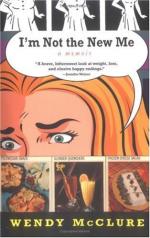Public interest constantly grew in the Zouaves and their young captain. Large crowds attended every drill. The newspapers began to report all their proceedings, and to comment upon them with more or less malevolence; for military companies were treated with scant respect in Western towns before the war. Ellsworth at last determined to confront hostile opinion by giving a public exhibition of the proficiency of his company on the Fourth of July. He was not without trepidation. The night before the Fourth he wrote: “To-morrow will be an eventful day to me; to-morrow I have to appear in a conspicuous position before thousands of citizens—an immense number of whom, without knowing me except by sight, are prejudiced against me. To-morrow will demonstrate the truth or falsity of my assertion that the citizens would encourage military companies if they were worthy of respect.” The result was an overwhelming success; and the young soldier, after his feast of crackers the next night, wrote in exultation: “Victory! And thank God!”
The Chicago “Tribune,” which had previously been unfriendly to the little company who were trying to make soldiers of themselves, gave a long and flattering account of the performance, and said: “We but express the opinion of all who saw the drill yesterday morning, when we say this company cannot be surpassed this side of West Point.”
Encouraged by this public applause, he brought his company of Zouaves as near to absolute perfection of drill as was possible; and then, having tested them in as many competitive contests as were within reach, he challenged the militia companies of the United States, and set forth in the summer of 1860 on a tour of the country which was one unbroken succession of triumphs. He defeated the crack companies in all the principal Eastern cities, and went back to Chicago one of the most talked-of men in the country. Hundreds of Zouave companies started up in his wake, and a very considerable awakening of interest in military matters was the substantial result of his journey.
[Illustration: THE DEATH OF COLONEL ELLSWORTH.]
On his return to Illinois he made the acquaintance of Abraham Lincoln, and gained at once his friendship and esteem. He entered his office in Springfield ostensibly as a law student; but Mr. Lincoln was then a candidate for the Presidency, and Ellsworth read very little law that autumn. He made some Republican speeches in the country towns about Springfield, bright, witty, and good-natured. But his mind was full of a project which he hoped to accomplish by the aid of Mr. Lincoln—no less than the establishment in the War Department of a bureau of militia, by which the entire militia system of the United States should be concentrated, systematized, and made efficient: an enormous undertaking for a boy of twenty-three; but his plans were clear, definite, and comprehensive.
[Illustration: THE MARSHALL HOUSE, ALEXANDRIA, VIRGINIA, IN WHICH COLONEL ELLSWORTH WAS KILLED.




